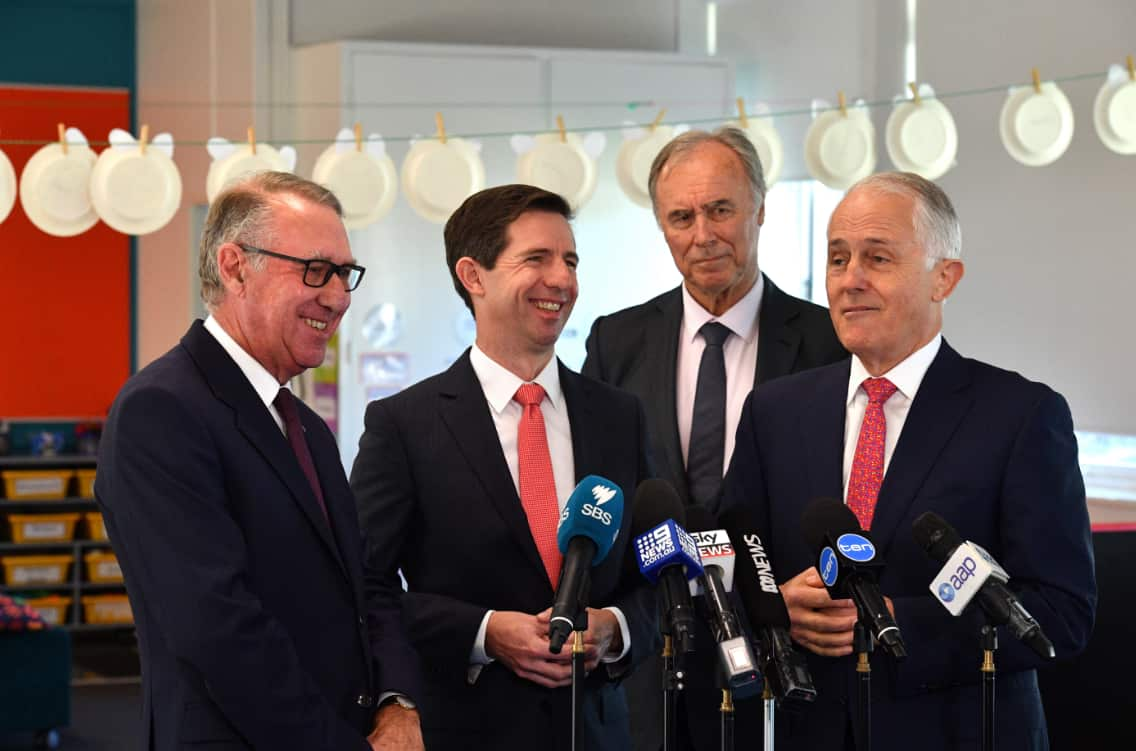Australia's school curriculum has failed a generation of children and must focus on stretching individual students to their maximum capabilities, according to a new report.
More money is being pumped into Australian schools than ever before but the country is falling backwards in international rankings.
"Our goal should be to be heading in the precisely the opposite direction," Prime Minister Malcolm Turnbull told reporters in Sydney on Monday.
"There's a lot riding on this."
The report, prepared by businessman David Gonski, said student outcomes must go beyond meeting age or year-based expectations.
Federal Education Minister Simon Birmingham said the "bell curve" of performance for Australian schools had shifted in a troubling direction.

Too many students 'coasting'
Not only were more students performing at a lower level, but fewer were performing at a very advanced level.
"We need to shift that curve back in the right direction," Senator Birmingham said.
He said teachers needed the tools and the time to ensure students reached their maximum abilities, rather than "bowling down the middle" in managing their classrooms.
"We have far too many cruising or coasting students at schools in Australia where kids go along and aren't necessarily extended as much as they could be during the course of the year," Senator Birmingham said.
"So it's about how do we actually not just lift our tail of performance but also get more high achievers and turn more B grade students into A grade students."
Mr Gonski wants progressive learning steps set out in each subject.
He also wants teachers to prioritise core literacy and numeracy for students before they turn eight, and ensure a smooth transition between early childhood learning and school.
Review senior level assessment: Gonski
Meanwhile, he recommends an urgent independent inquiry investigate the teaching and assessment of year 11 and 12 students, releasing its findings within a year.
There's also a series of recommendations to support teachers, including the development of an online tool to allow them to track individual student progress and suggest individualised supports.
"If we get it wrong, presumably we stay where we are, which is not good enough," Mr Gonski told reporters.
"(But) if we can get these tools to the teachers - our teachers who are talented and by the way equipped, and we want to equip them better both with time and obviously backing - we'll be able to shoot for the stars."
Federal, state and territory education ministers will meet on Friday to be briefed by Mr Gonski.
The federal government has already given in-principle support to his 23 recommendations
Senator Birmingham is hopeful an agreement can be negotiated this year, allowing changes to be implemented from 2019.
The Australian Education Union believes the report does not go far enough in addressing resource shortages facing public schools.
"We know that when schools have the resources they need to give students the individual attention they need, we see improved educational outcomes," AEU president Correna Haythorpe said.
"If the Turnbull government thinks that this report and its recommendations will be a distraction from the critical issue of funding, then they are wrong."

